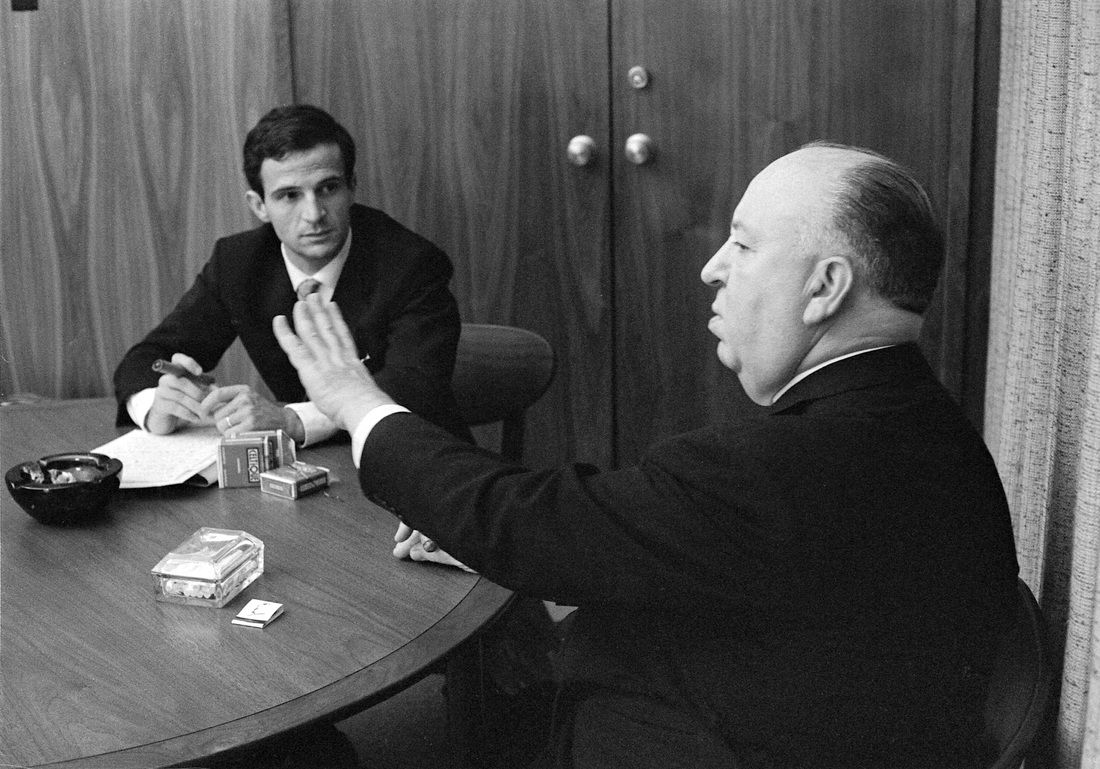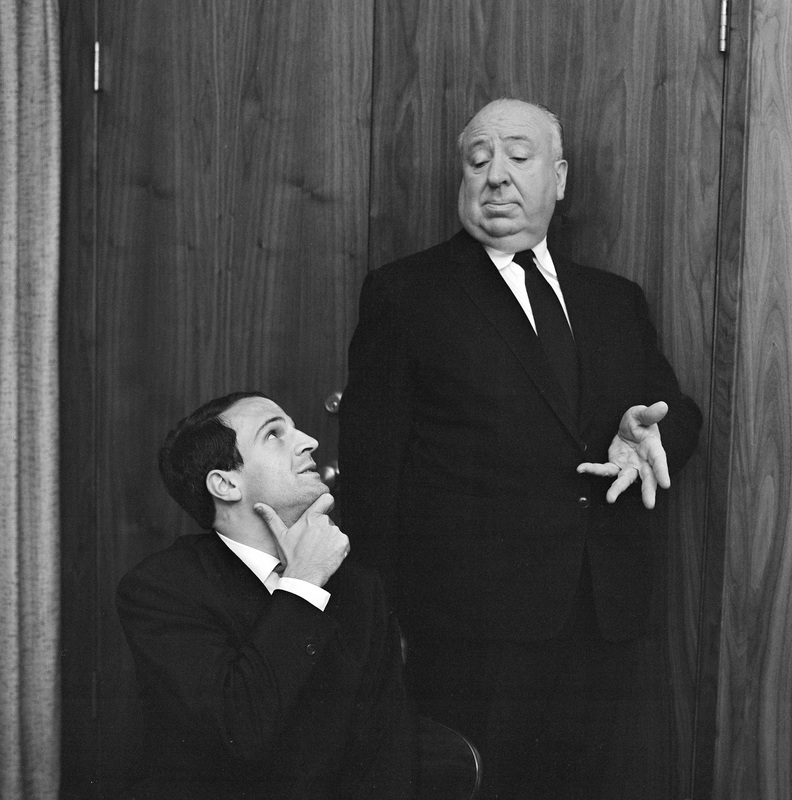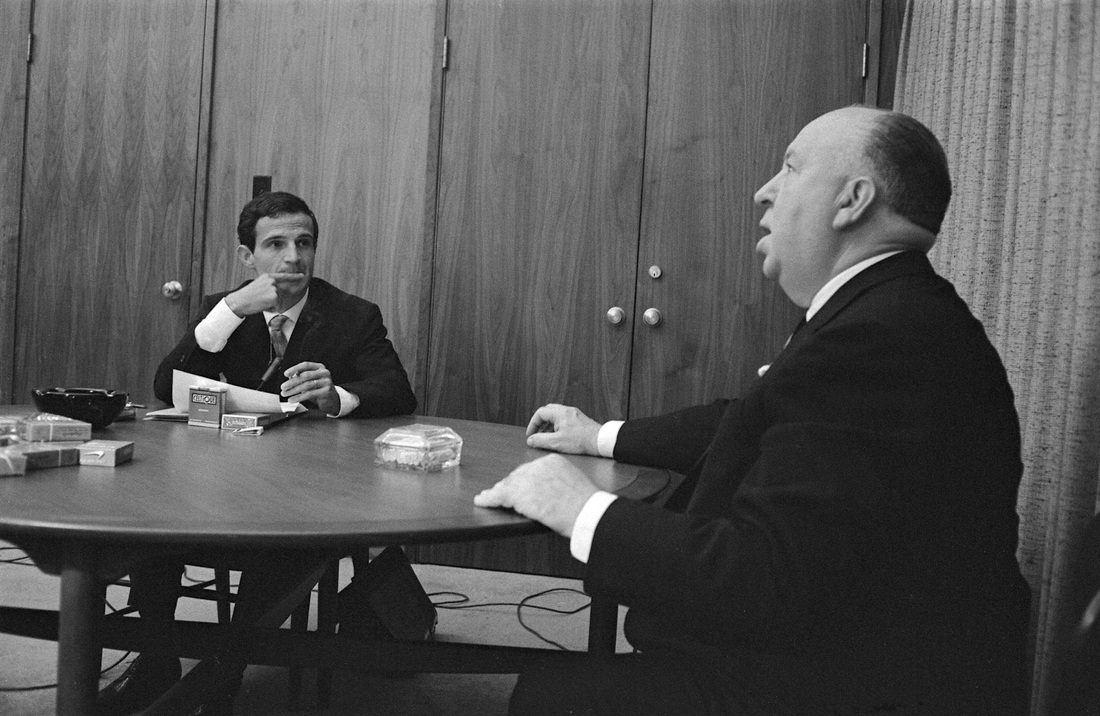|
Film based on the directors' famous 1962 conversations played in theaters before pay cable debut
Alfred Hitchcock surely remains one of the most popular directors in motion picture history. That's quite an achievement in itself, given that he's been gone since 1980.
His films burrowed into the collective psyche of moviegoers around the world. Yet he never won an Oscar for directing. And for most of his career he was not taken particularly seriously as a cinematic artist. It is the greatest known mass medium there is.
It took another great director, a young François Truffaut, to help critics and the public appreciate the British filmmaker's brilliance. In the early 1960s he convinced Hitch to sit for a series of interviews that became an influential book. The conversations were not filmed, but they were recorded on audio tape. Those tapes have now become the basis of the documentary Hitchcock/Truffaut.
SHARE THIS:
The documentary by Kent Jones premieres on HBO Monday, August 8 at 9 pm. Additional airdates include August 11 (4:30 pm); August 13 (1:45 pm); August 18 (3 pm, 12:30 am); August 24 (11:30 am), and August 30 (1:30 am). It premieres on HBO2 on Aug. 10, with several playdates on that channel to follow. It will also be available on HBO on Demand.
The film features interviews with leading directors of today -- among them Martin Scorsese, Wes Anderson, David Fincher, Olivier Assayas and Richard Linklater -- discussing Hitchcock's work and the impact of the Hitchcock-Truffaut conversations,
It conclusively changed people's opinions about Hitchcock.
The filmmakers contribute valuable insight about Hitchcock's technique. Most illuminating are the interchanges between Hitchcock, then in his 60s, and his pupil, in effect, then 30-year-old Truffaut.
We get insight into the mathematical precision with which Hitchcock constructed his films, and how some actors -- particularly those of the proto-method school, chafed at his direction which made the performer very much subservient to the overall tone and tenor of the film. The actors, in other words, served a purpose, and the purpose was not to draw attention to the performances themselves, but to fulfill a function -- just as lighting, framing and editing were in support of and subservient to the larger cinematic project. [In this respect I think Hitchcock and Kubrick are similar -- Kubrick did so many takes with his actors, I think, to "press" the performing out of them; they become part of the overall choreography of the film, in which camera movement and lighting are key].
A glittering example of Hitchcock's genius comes in an anecdote about Notorious. In one indelible scene Cary Grant mounts a staircase, carrying a glass of milk to Ingrid Bergman. What Hitchcock did with the glass of milk is just brilliant: he tells Truffaut he put a light inside the glass to give it added luminescence. [We also learn that Grant and Bergman found it extremely uncomfortable and bothersome to film a fluid scene that involved kissing and walking. But as we see the scene we realize how right Hitchcock was to film it in the way he did].
I came away with a much greater understanding of how the films of Hitchcock truly reflected his own preoccupations, fears and fantasies. In that sense he really was an auteur, in the way Truffaut and his contemporaries in the Nouvelle Vague defined it. He was creating a personal cinema -- works of art that were analogous to what a painter, composer or great writer would make [the dilemma in auteur theory has always been to enshrine the director as the author of a work of art that is nonetheless collaborative in nature -- certainly to a much greater degree than painting, composing or writing].
I appreciate now how distinct Hitchcock was from almost every other filmmaker. Most directors "present" a film to us; they "show" us what's happening in a story. We sit back and watch. Hitchcock brings us inside the movie. We are implicated in it because our psychological states have been activated by the imagery. We are on an equal footing with the characters in the story -- seized by the same terrors and temptations.
|
AuthorMatthew Carey is a documentary filmmaker and journalist. His work has appeared on Deadline.com, CNN, CNN.com, TheWrap.com, NBCNews.com and in Documentary magazine. |
- Home
- News
- Videos
-
Galleries
- 2019 Tribeca Film Festival
- Full Frame Documentary Film Festival
- 2019 SXSW Film Festival
- SXSW 2018 Gallery
- 2019 Sundance Film Festival
- Outfest 2018 Photo Gallery
- Outfest 2017
- Sundance 2018 Photos
- 2017 LA Film Festival
- 2017 Cannes Film Festival
- Tribeca Film Festival 2017
- SXSW 2017 Gallery
- 2017 Berlin Film Festival
- Sundance 2017 Gallery
- 2016 Los Angeles Film Festival
- Cannes Film Festival 2016
- SXSW 2016 Gallery
- Berlinale 2016 Gallery
- Sundance 2016 Gallery
- Filmmaker Gallery
- About
- Contact
Proudly powered by Weebly
- Home
- News
- Videos
-
Galleries
- 2019 Tribeca Film Festival
- Full Frame Documentary Film Festival
- 2019 SXSW Film Festival
- SXSW 2018 Gallery
- 2019 Sundance Film Festival
- Outfest 2018 Photo Gallery
- Outfest 2017
- Sundance 2018 Photos
- 2017 LA Film Festival
- 2017 Cannes Film Festival
- Tribeca Film Festival 2017
- SXSW 2017 Gallery
- 2017 Berlin Film Festival
- Sundance 2017 Gallery
- 2016 Los Angeles Film Festival
- Cannes Film Festival 2016
- SXSW 2016 Gallery
- Berlinale 2016 Gallery
- Sundance 2016 Gallery
- Filmmaker Gallery
- About
- Contact




 RSS Feed
RSS Feed